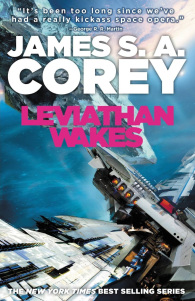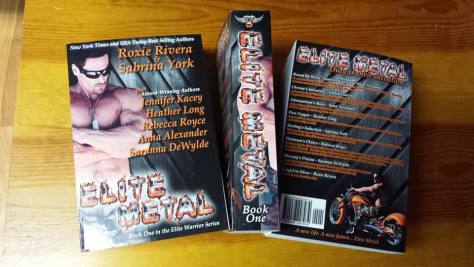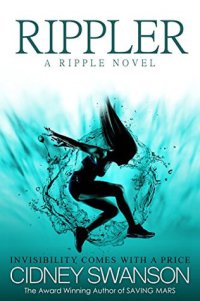
- Genre: science fiction
- My rating: 7.5/10
I am very late to this party, and the whole world is already reading this series or watching the TV show. So, for my first paragraph I will just regurgitate some essential facts about this series to get all the obvious stuff out of the way, ok?
So, Leviathan Wakes is the first book of the series The Expanse, which will comprise nine books in total. The writer, James S.A. Corey, is actually a pseudonym for a collaborative effort of writers Daniel Abraham and Ty Franck. Abraham already had some writing experience and Franck developed a role-playing game that would become the inspiration behind the universe that they created for these books. The Expanse series is gritty space opera, set in the future in which humanity is spread out across the solar system.
We are inhabiting the Moon, Mars, the Asteroid Belt and some of Jupiter’s and Saturn’s moons. These places function as their own nations, more or less, and with the opening of Leviathan Wakes, Earth and Mars have a tense relationship. They both have their eyes on the resources of the asteroid belt and the Belters are stuck in the middle as a lower class frontier zone. It’s a compelling vision of the future, seeing millions of people spread out over the system. It’s also realistic when it comes to politics, international tensions, corporations, class differences and so on. This future has all the vices of the 21st century.
We follow two main characters: James Holden, executive officer on the ship Canterbury, which hauls ice from the rings of Saturn to Ceres in the asteroid belt. With a small team he investigates the abandoned ship Scopuli before the Canterbury is blown up by a mysterious enemy, stranding him and his team in deep space. He’s loyal to his crew and idealistic. Secondly, detective Miller on Ceres, who is tasked to find and retrieve a girl who turned out to be a passenger on board the Scopuli. Miller is more jaded, like a detective from a noir film. There are hints of forbidden knowledge on board the Scopuli and hidden enemies are making their moves.
The chapters are short and move fast, each one ending with a cliffhanger so you keep reading. I’m not sure that is entirely a good thing. It creates momentum but also feels a bit artificial. The story is very cinematic; full of action and difficult decisions taken in little cramped ships. The switch back and forth between Holden and Miller nicely shows how events at one end of the solar system have effects at the other end.
In case you are familiar with Alastair Reynolds’s Revelation Space novels, The Expanse has the same type of grittiness but with a sprinkling of idealism, and has the same hard-SF stance towards the limits of space travel. Hell, the two series could conceivably be set in the same universe, only with The Expanse as a prequel series set a few hundred years before Revelation Space (I say this only after reading the first Expanse novel, though). The Expanse therefore does not have brain-tingling advanced SF concepts as are found in Reynolds’s series. However, Abrahams and Franck have a much better sense of pacing and plot structure.
I’m touching on action and plot structure because these are the brightest points of the novel. The writing is merely adequate and the characterization is rather thin. Half of the time, I had trouble keeping apart the characters Amos and Alex, and that’s a problem when your crew is only four people. Detective Miller is a walking cliché but the writers dodge that problem by making it part of Miller’s character flaws. The same goes for Holden’s naivete. The point is that the characters are easily recognizable archetypes in a story that above all aims to be fun and easily digestible.
I had a blast of a time reading Leviathan Wakes – most of the time. The story is just wonderfully paced and unfolds rapidly, and as popcorn action story this is a job very well done. I had trouble taking this story seriously, though, because the characters and writing are so flat, and I lost some interest. The universe Abraham and Franck set down is fun and the story itself is quite ambitious, so I might read some sequels. I did miss the interesting SF concepts of Reynolds or Banks, but if you’re looking for a series that is all about the reader’s journey, this one hits the spot.
Compared to the TV show
The first season covers about 75% of the first novel, but also includes material from the next books. Considering that there are 8 more novels to go, that’s a lot of material left to adapt. The TV series does many things right. It nails the visuals and most of the characters. The first obvious difference is that the show is less nuanced and rewritten for more conflict. Especially in the case of James Holden and his crew, the TV series creates more interpersonal conflict and personal drama.
Detective Miller works much better in the book, though. On screen he comes across as an arrogant, pretentious asshole. His story is also so drastically rewritten for the show that it only follows the most general beats of the story.
Advertisements Share this:




